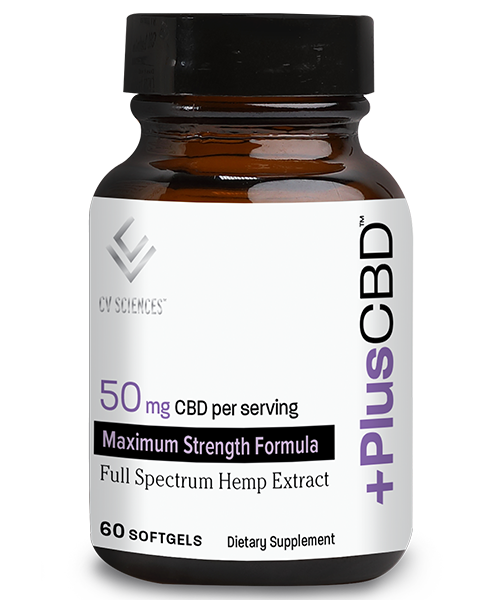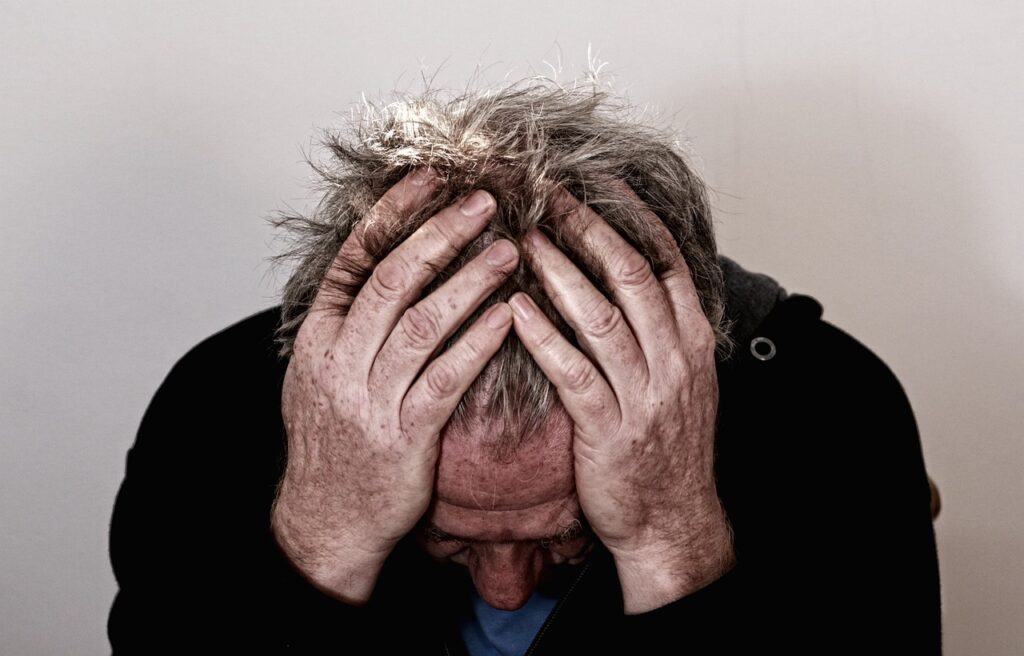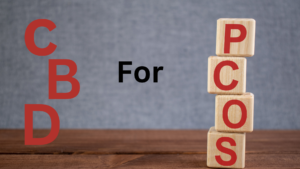CBD, or cannabidiol, has been gaining popularity as a potential treatment for anxiety and depression. As more people seek natural alternatives to traditional medications, CBD has emerged as a promising option. While research on the effectiveness of CBD for anxiety and depression is still limited, early studies suggest that it may have significant benefits.
- CBDfx / CBD + CBG Wellness 2:1 CBD Tincture 500mg - 4000mg

- Merchant:Buy CBD Hub | Delta 8 | Delta 10
- Price: $194.99
- Kangaroo CBD / Sorbet CBD Gummy Bears 10mg

- Merchant:Buy CBD Hub | Delta 8 | Delta 10
- Price: $159.99
- PlusCBD Maximum Strength Softgels 50mg 60ct

- Merchant:PlusCBD by CV Sciences
- Price: $119.99
Anxiety and depression are two of the most common mental health disorders in the United States, affecting millions of people each year. While there are many pharmaceutical treatments available, they often come with unwanted side effects and can be expensive. CBD, on the other hand, is a natural compound derived from the hemp plant that has been shown to have few side effects and is generally well-tolerated. As a result, many people are turning to CBD as a potential alternative to traditional medications.
Despite its growing popularity, there is still much we don't know about CBD and its effects on anxiety and depression. However, early studies have shown promising results, and many people report significant improvements in their symptoms after using CBD. As research into this area continues, we may gain a better understanding of how CBD can be used to treat these common mental health disorders.
Understanding Anxiety and Depression

Anxiety and depression are two of the most common mental health disorders affecting people worldwide. According to the World Health Organization (WHO), depression is the leading cause of disability worldwide, while anxiety disorders are the sixth largest contributor.
Anxiety is a feeling of unease, such as worry or fear, that can be mild or severe. It is a natural response to stress, but when it becomes excessive, it can interfere with daily activities and relationships. Anxiety disorders include generalized anxiety disorder, panic disorder, social anxiety disorder, and specific phobias.
Depression, on the other hand, is a persistent feeling of sadness or loss of interest in activities that one used to enjoy. It can affect a person's thoughts, behavior, and overall well-being. Depression can be caused by a combination of genetic, biological, environmental, and psychological factors.

Both anxiety and depression can have a significant impact on a person's quality of life, affecting their ability to work, socialize, and carry out daily activities. It is essential to seek professional help if you are experiencing symptoms of anxiety or depression.
Some common symptoms of anxiety and depression include:
- Feelings of sadness, hopelessness, or worthlessness
- Loss of interest in activities
- Changes in appetite and sleep patterns
- Fatigue or lack of energy
- Difficulty concentrating or making decisions
- Irritability or restlessness
- Physical symptoms such as headaches or stomachaches
In the next section, we will explore how CBD may help alleviate symptoms of anxiety and depression.

Cannabis, Medical Marijuana and CBD
We know that many people turn to cannabis and medical marijuana to help manage symptoms of anxiety and depression. While the research is still limited, there is evidence to suggest that certain compounds in cannabis, including CBD, may have therapeutic benefits.
CBD, or cannabidiol, is a non-intoxicating compound found in both cannabis and hemp plants. Unlike THC, the psychoactive compound in cannabis, CBD does not produce a "high" and is generally well-tolerated by most people. This makes it an attractive option for those who want to avoid the psychoactive effects of cannabis.
Medical marijuana, on the other hand, contains varying levels of THC and CBD, depending on the strain. Some people find that strains with higher levels of CBD and lower levels of THC are more effective for managing anxiety and depression.
CBD edibles, such as gummies and chocolates, have become increasingly popular in recent years. While they may be a convenient way to consume CBD, it's important to note that they can take longer to take effect and may not be as potent as other forms of CBD, such as tinctures or capsules.
It's important to note that while cannabis, medical marijuana, and CBD may be helpful for some people with anxiety and depression, they are not a substitute for professional medical treatment. If you are experiencing symptoms of anxiety or depression, it's important to talk to your healthcare provider about the best course of treatment for you.
CBD for Anxiety
Anxiety is a common mental health condition that affects millions of people worldwide. While there are various conventional treatments available, many people are turning to CBD as a natural alternative. In this section, we will explore how CBD works for anxiety.

How Does CBD Work for Anxiety?
CBD interacts with the body's endocannabinoid system (ECS), which is responsible for maintaining balance or homeostasis in the body. The ECS is made up of receptors, enzymes, and endocannabinoids, which are similar in structure to cannabinoids found in cannabis.
CBD interacts with the ECS by binding to receptors, specifically the CB1 and CB2 receptors. These receptors are found in various parts of the body, including the brain, immune system, and nervous system.
Research suggests that CBD may help reduce anxiety by affecting the serotonin system. Serotonin is a neurotransmitter that plays a role in regulating mood, anxiety, and stress. CBD may increase serotonin levels by blocking the reabsorption of serotonin into the brain's cells, leading to increased levels of serotonin in the synaptic space.
CBD may also help reduce anxiety by activating the adenosine receptor. Adenosine is a neurotransmitter that plays a role in regulating sleep, anxiety, and depression. CBD may activate the adenosine receptor, leading to reduced anxiety levels.
While there is still much research needed to fully understand how CBD works for anxiety, early studies show promising results. CBD may be a natural alternative for those looking to manage their anxiety symptoms without the side effects of conventional treatments.
CBD may be an effective natural alternative for managing anxiety symptoms. By interacting with the body's endocannabinoid system, CBD may help regulate mood, anxiety, and stress levels. As always, it is essential to consult with a healthcare professional before starting any new treatment, including CBD.

CBD for Depression
Depression is a common mental health disorder that affects millions of people worldwide. While there are several treatment options available, many individuals turn to CBD as a natural alternative to traditional medication. In this section, we will explore how CBD works for depression.
How Does CBD Work for Depression?
CBD interacts with the body's endocannabinoid system, which is responsible for regulating various physiological processes, including mood, appetite, and sleep. Research suggests that CBD may help alleviate symptoms of depression by increasing the levels of serotonin in the brain. Serotonin is a neurotransmitter that plays a crucial role in regulating mood, and low levels of serotonin have been linked to depression.
CBD also has anti-inflammatory properties, which may help reduce inflammation in the brain and improve overall brain function. Additionally, CBD may help regulate the stress response in the body, which can be beneficial for individuals with depression.
One study found that CBD was effective in reducing symptoms of depression in animal models. However, more research is needed to determine the effectiveness of CBD for treating depression in humans. It is important to note that CBD should not be used as a substitute for professional medical advice or treatment.
Cannabis/Medical Marijuana/CBD Edibles
While CBD can be derived from both hemp and marijuana plants, medical marijuana and CBD edibles may contain higher levels of THC, the psychoactive compound in cannabis. THC can have mood-altering effects and may exacerbate symptoms of depression in some individuals. Therefore, it is important to consult with a healthcare professional before using medical marijuana or CBD edibles for depression.
In conclusion, while there is promising research on the use of CBD for depression, more studies are needed to determine its effectiveness. It is important to consult with a healthcare professional before using CBD as a treatment for depression, and to use it in conjunction with other treatment options as recommended by a medical provider.
CBD Edibles for Anxiety and Depression
Benefits of CBD Edibles
CBD edibles have become increasingly popular as a natural way to relieve anxiety and depression symptoms. These edibles are infused with CBD, which is a non-psychoactive compound found in cannabis. CBD edibles have many benefits, including:
- Long-lasting effects: CBD edibles can take longer to kick in, but they tend to have longer-lasting effects than other forms of CBD.
- Discreet: CBD edibles are discreet and can be eaten in public without drawing attention to yourself.
- Easy to dose: CBD edibles come in pre-dosed servings, making it easy to control your intake.
- Wide variety of options: CBD edibles come in many different forms, such as gummies, chocolates, and baked goods, giving you many options to choose from.
How to Choose the Right CBD Edibles
When choosing CBD edibles for anxiety and depression, there are a few things to consider:
- Dosage: Start with a low dose and gradually increase until you find the right dosage for you.
- Type of CBD: Look for CBD edibles that use full-spectrum CBD, which contains other beneficial compounds found in cannabis.
- Quality: Choose CBD edibles from reputable companies that use high-quality ingredients and have their products tested by third-party labs.
- Ingredients: Look for CBD edibles that use natural ingredients and avoid those with artificial flavors and colors.
We have compiled a list of approved vendors, which you can find here:
Potential Side Effects of CBD
As with any medication or supplement, CBD may cause some side effects. However, the side effects of CBD are generally mild and well-tolerated. In this section, we will discuss some of the potential side effects of CBD.
One of the most commonly reported side effects of CBD is drowsiness. This is especially true at higher doses. If you plan to take CBD during the day, we recommend starting with a low dose and gradually increasing it until you find the right dose for you.
Another potential side effect of CBD is dry mouth. This is because CBD can decrease saliva production. If you experience dry mouth while taking CBD, we recommend drinking plenty of water and chewing sugar-free gum to help stimulate saliva production.
CBD can also interact with certain medications, including blood thinners and anti-seizure medications. If you are taking any medications, we recommend speaking with your doctor before taking CBD.
It is also important to note that CBD can interact with alcohol. If you plan to drink alcohol while taking CBD, we recommend starting with a low dose of CBD and avoiding alcohol until you know how your body reacts to the combination.
In rare cases, CBD can cause some more serious side effects, such as changes in appetite, diarrhea, and fatigue. If you experience any of these side effects, we recommend stopping the use of CBD and speaking with your doctor.
Overall, CBD is a safe and well-tolerated supplement that may help with anxiety and depression. However, as with any supplement, it is important to be aware of the potential side effects and to speak with your doctor before taking CBD if you are taking any medications or have any underlying health conditions.

Conclusion
In conclusion, CBD has shown promising results as a potential treatment for anxiety and depression. While more research is needed to fully understand its effects, the existing studies suggest that CBD may help alleviate symptoms of these mental health conditions.
We must note that CBD is not a cure for anxiety or depression, and it should not be used as a replacement for professional medical advice or treatment. However, it may be used as a complementary therapy in conjunction with other treatments.





